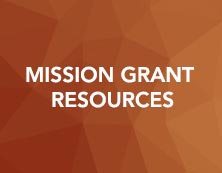You’ve just been named to a committee? CONGRATULATIONS!
You’ve been appointed a committee chairman? CONGRATULATIONS!
A vigorous and effective organization must have active and energetic committees. Interested and enthusiastic members need productive and worthwhile committees as a means of contributing their talents and energies to fulfill the mission or purpose of the organization.
Committees are instruments for accomplishment – doing the right thing at the right time in the right way. The cooperation among people in the process is as important as what the committee accomplishes. Your responsibility as a committee member or chairman is a real challenge, and meeting it successfully will be a rewarding experience.
You may be asking: How can we assure good attendance at committee meetings? How can we make sure all express views freely? How do we keep the discussion from going around in circles? Other questions also come to mind. Voluntary cooperation usually has to be fostered and encouraged. A successful committee requires a clear understanding of responsibilities by all participants.
RESPONSIBILITIES
The chairman
| To present the project or problem | Where do we go? |
| To clarify problem or project | Why are we going or doing? |
| To stimulate group thinking | How can we get there? |
| To follow the discussion | What’s the best route? |
| To summarize the discussion | How far have we gone? |
The committee member
| To take part in discussion |
| To avoid discussing unrelated matters |
| To keep prejudices in check and respect another’s views |
| To follow the discussion attentively |
| To share experiences for the benefit of the group |
| To help make decisions, then act |
| To attack problems impersonally and avoid arguments |
| To share experiences for the benefit of the group |
To keep the committee functioning effectively, certain principles should be recognized, supported by suggested practices.
Principle: COMMITTEE SHOULD EXPECT TO HAVE SIGNIFICANT WORK TO DO; COMMITTEE MEMBERS SHOULD BE COMPETENT FOR THAT WORK.
Committee members should
… find opportunities for growth through cooperation with others in work that could not be accomplished individually … look forward to the satisfaction of accomplishment of worthwhile goals … expect to contribute their thinking, knowledge, experience, wisdom and skills … expect to be given objectives or to determine their own in keeping with those of the organization … expect to have freedom within stated policies to work toward objectives
Practice: To accomplish committee work, the organization’s leader
- reviews bylaws, policies and job descriptions to determine on-going purposes and responsibilities
- prepares (or has prepared) a job description, avoiding overlapping responsibilities among committees
- provides each committee a chart with lines of responsibility and communication
- expects results and requests status reports regularly, offering assistance where indicated
- selects committee chairmen on basis of competence relative to the committee’s job definition
- appoints committee members with ability or potential
- obtains agreement of committee members to accept responsibility for performance of committee according to job definition
- makes known the reason for person’s selection, helping them understand each other better
Principle: COMMITTEE CHAIRMAN SETS THE TONE, TEMPO AND TACTICS OF THE OPERATION OF THE COMMITTEE
Committee chairman should
… see that things get done … plan to accomplish committee goals on a schedule compatible with the work of other committees … delegate tasks to committee members … coordinate the work and reports … guide discussion to a productive conclusion … function as a leader rather than a commander … avoid letting the committee meeting be a waste of time
Practice: To accomplish this, the chairman
- accepts responsibility for performance of the committee
- gives a clear, concise statement of what is to be accomplished or considered at each meeting
- maintains communication essential for cooperation and coordination
- uses accepted techniques of planning, problem-solving, discussion and decision-making
- keeps records in orderly condition for ready reference
- starts with questions to generate discussion leading to cooperation or creativity in providing answers
- avoids beginning with statements, as they solicit support, opposition, or silence
- maintains contact with committee members as they complete assignments
- recognizes that records are property of the organization
- uses error constructively
- asks – what, why, how – about goals of committee in relation to objectives of organization
- asks – who, when, where – about transforming ideas into actions
- keeps emotions under control
- restates pertinent points when discussion gets off-topic
- gives reasonable explanations
- gives committee members responsibility for obtaining additional information, doing research, or studying specific problems or questions
- encourages freedom of expression
- offers assistance and guidance to the inexperienced
- is available to committee members
Principle: LEADER, CHAIRMAN AND COMMITTEE MEMBERS SHOULD BE KNOWLEDGEABLE ABOUT THE OPERATIONS OF THE COMMITTEE
Questions of procedure include
… to whom does the committee report … from whom will the committee get response … what policies and limitations control the committee’s freedom to work … how does the committee replace personnel when necessary … what is the budget for committee activities … is there a definite schedule of meetings … how is agenda for meetings constructed … who keeps official records of committee … who sends minutes promptly after each meeting … do minutes go to officers or board members … do actions of Executive committee or Board that might affect committee’s work get reported promptly to committee
Practice: Answers to such questions
- should be included in the job definition as much as possible
- when not in job definition, be determined at first committee meeting when responsibilities are assigned
- become a permanent record of committee for future reference
- should be clearly understood for efficient operation of committee
- are obtained by the chairman from Executive Committee if not otherwise defined or decided
- are made available to all committee members
Principle: COMMITTEES ACCOMPLISH MORE WHEN MEMBERS WORK ON ASSIGNMENTS BETWEEN MEETINGS
Committee members
… have limited time during meetings for actual accomplishment of specific tasks … can make informed and effective decisions when necessary time and thoroughness have been spent in preparing for the meeting
Practice: To avoid unnecessary delay
- tasks to be done between meetings are stated as definite assignments by the chairman
- assignments are recorded in the minutes
- minutes should be sent promptly as a reminder
- absent members should be informed of assignment
- committee members should report in meeting without interruption or discussion, thereby usually answering most questions
- members should not be overloaded, rather assignments should be a pleasant growth experience
Principle: EFFECTIVE COMMUNICATION REQUIRES EFFORT ON THE PART OF BOTH THE SPEAKER AND THE LISTENERS
Committee members
… should recognize that different interpretations of words can cause difficulties in transmitting ideas … can help reduce misunderstanding and save time by trying to crystallize ideas before speaking
Practice: The chairman
- should assist members in recognizing that committee communication very often is just “thinking out loud”
- can help understanding by repeating a statement in different words
- when it seems a consensus is reached, should verify by asking, “Do we agree that -----“
- sees that exact wording is recorded for clear meaning
- may summarize what has been said or ask speakers to do so
- gets acceptance of the “minutes” before committee adjourns, members agreeing on what has been said and done before printed minutes are distributed
Principle: ALL COMMITTEE DECISIONS AFFECT PEOPLE; PEOPLE SHOULD BE CONSIDERED WHEN MAKING DECISIONS
In most organizations
… fulfillment of committee decisions depends upon the voluntary cooperation of members … people affect the success or failure of the work of committee
Practice: Committees would be wise to
- seek opinions before decisions are made
- recognize that opinions are facts about how people react
- use resources beyond the committee if necessary to produce evidence needed for informed decisions
- consider how much time and effort will be required for implementation by those affected by a decision
- remember that “cooperation cannot be legislated”
- remember that regulations must have the support of those affected in order to be effective
As a COMMITTEE MEMBER or COMMITTEE CHAIRMAN, you play an important role in the success of the Lutheran Women’s Missionary League program in action. Consciously seeking the Holy Spirit’s guidance … contributing the specialness that is YOU … actively fulfilling your committee’s purpose … enriching and enabling each other through mutual accomplishment: that’s how God’s people serve Him in love.
View printable PDF of this article, Guidelines for Committees








